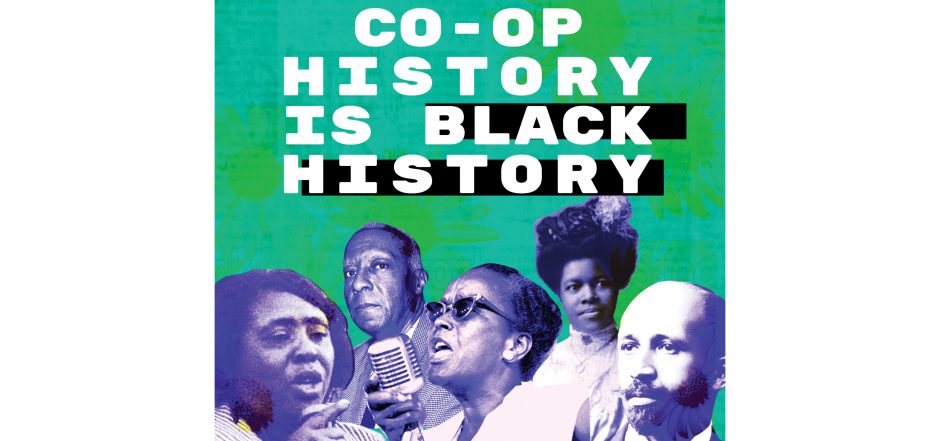Black History Month is an annual observance in the United States that takes place in February – a month-long celebration of the achievements and contributions of African Americans to the nation’s past, culture, and society.
Like the UK celebration, which takes place in October, Black History Month sees events and activities held to honour the legacies of notable African American figures, and explore the experiences and struggles of African Americans throughout history. Co-ops have played an important role in the history of African Americans and their pursuit of economic and social justice; during the early 20th century, co-ops were used as a means of economic empowerment and community building among African Americans, who were often excluded from mainstream financial institutions and faced discrimination in the labour market.
The Southern Tenant Farmers’ Union (STFU), for example, was established in the 1930s to represent the interests of sharecroppers and tenant farmers in the Southern United States, many of whom were African American. The STFU established a network of co-operatives that provided access to credit, technical assistance, and marketing support to its members, helping them to improve their economic conditions and gain greater control over their lives. That tradition continues today with the Federation of Southern Cooperatives, which provides resources and technical assistance to limited-resource Black farmers and landowners.
In more recent years, US co-ops have also focused on promoting economic development and building wealth, providing access to affordable housing, healthy food, and other essential services in underserved neighbourhoods. But, as the New Economy Coalition (NEC) reminds us, whatever the sector, “Co-op History is Black History”.

“From mutual aid societies to freedom farms and credit unions, Black communities have been using co-operative economics as a tool for collective liberation, self-determination, and to resist the violence of racial capitalism for centuries. What we call the ‘solidarity economy’ wouldn’t exist without this history and practice. We honour these legacies, and celebrate the radical Black co-operators in our network and around the world who continue to lead the solidarity economy movement and make new and liberatory worlds possible every day.”
NEC is a membership-based network representing the solidarity economy movement in the United States. It recently published a resource list for anyone wanting to learn more about Black co-op history – and between December 2022 and January 2023, its Black Solidarity Economy Fund working group redistributed US$300,000 to 51 Black-led solidarity economy projects.
“Black co-operative economics has delivered justice, prosperity, and security when it has been systematically denied to Black communities. All this has occurred despite a system that denies Black communities critical access in the realm of funding, ideas, leadership, and capacity-building,” says NEC, describing the fund.
“Guided by our Black-led member organisations and a sincere desire to take immediate concrete steps towards rectifying this inequity, we are acting to redistribute the power of money and ideas by investing a portion of our budget to support the power of Black-led organisations, organisers, and ideas – which are too often ignored, silenced, and appropriated.”
Click here to access the NEC’s ‘Co-op History is Black History’ resource list